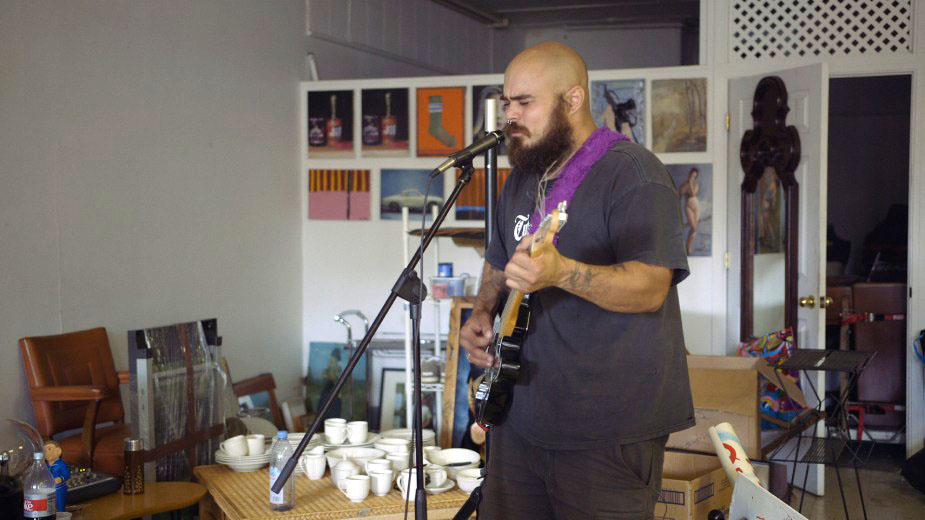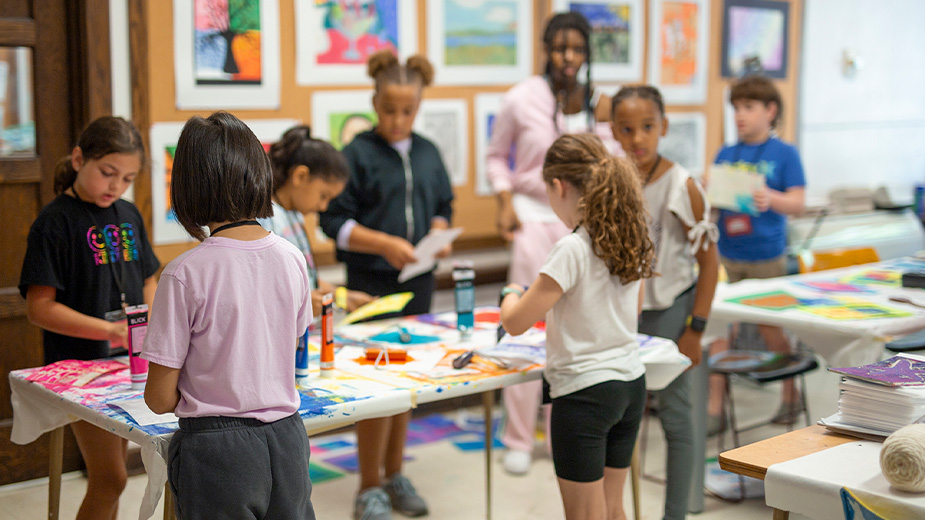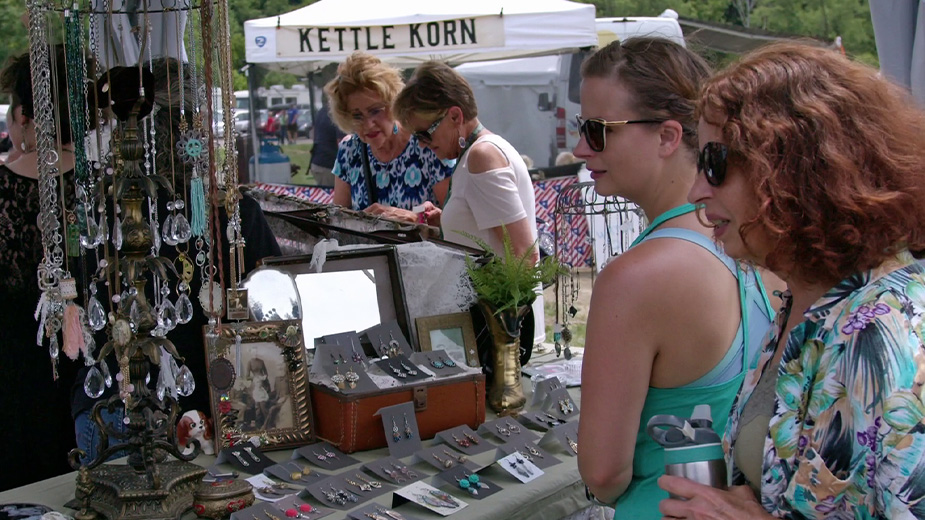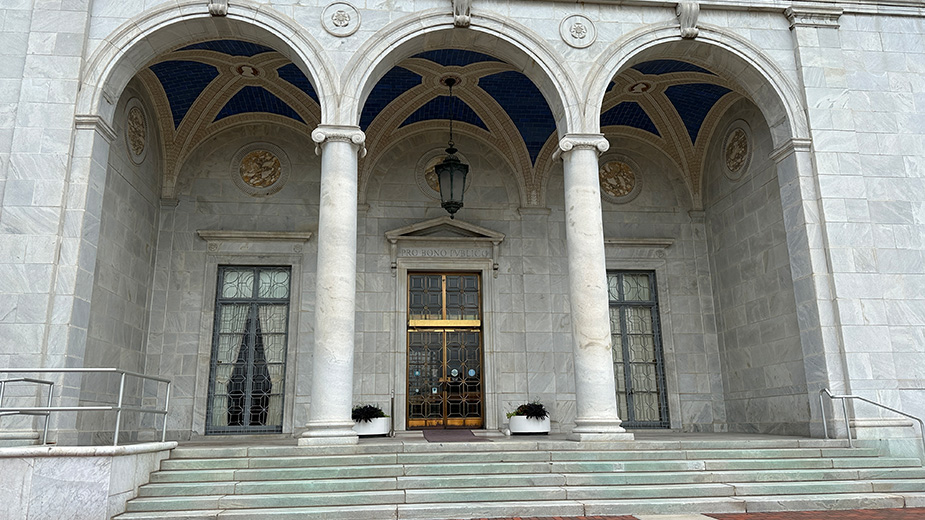‘Greyland’ Film Trains Eye on Residents at Youngstown’s Core
YOUNGSTOWN – “Greyland,” a documentary that looks at Youngstown’s post-industrial core through the eyes of a few of its residents, will get its area premiere Aug. 16 at 8 p.m. at Westside Bowl.
The 75-minute film is the work of Alexandra Sicotte-Levesque, a Canadian documentary maker, journalist and humanitarian aid worker.
It focuses mainly on Rocco Sait and Amber Beall Farris, who both stayed in the city to make a go of it.
Sait is the founder of Greyland, a downtown store that offers offbeat repurposed and vintage goods obtained from cleanouts of auctioned or abandoned homes in the city. Sicotte-Levesque named the film for the store.
The idea for the film grew from a visit she paid to the city in 2012. She shot her first frames of Sait at that time, and knew she had something worth continuing.
Sicotte-Levesque returned periodically over the next decade to finish the film – in the process giving it a deep perspective as the lives of the residents changed.
It all started not long after she returned from Africa, where she had been working for the Red Cross. A friend of hers, professor-author Justin Gest, was doing research in Youngstown for a book, “The New Minority,” about white working class politics, and he implored her to visit.
“He said, ‘You have got to come to Youngstown,’” she recalled. “After living in Sudan [where she also filmed a documentary], I was shocked to see the breakdown in communities [in America], and the extent of the impact of the economic collapse [after 2008].”
She recalled the first time she and her cinematographer, Katerine Giguere, met Sait.

“He was initially a bit wary of us, because [he said] people always come to Youngstown to extract stories,” Sicotte-Levesque said. “But we talked and [I explained] that my films try to show aspects that you don’t see in mainstream media, perspectives you never see. He saw our vision.”
Sait, who is also a local musician, said he eventually agreed to be part of the film and came to view it as a worthwhile project.
“I was reluctant at first,” he admitted. “But once I got to know them, I changed my mind.”
Sicotte-Levesque never set up a scene or requested a reshoot, insisting that all footage be natural. The filmmaker was also sincerely interested in the subject matter, Sait said.
He would not have agreed to be in a film designed to be gawked at by outsiders.
“You know how a rich person might take a rusty dolly and put it [on display], like it’s a spectacle, something to show to their friends, without ever having to use it?,” he asked, explaining his initial apprehension with an analogy.
Farris had already been interviewed by Gest for his book and was familiar with Sicotte-Levesque when she was first contacted by her.
“I was confused at first as to why anyone would care about anything I was doing,” Farris said. “But they interviewed me over [a video chat service] and said, ‘you are who we want to talk to.’”
Farris has a sense of pride in the film.
“Rocco and I are still doing what we were doing 10 years ago, trying to make things better but in different ways,” she said. “At the time [filming started], I was a 26-year-old mom raising a 5-year-old son. I had bought a house on the North Side for $3,000. I was able to show my son a world where you can give of yourself, to your community, and see results.”
Farris methodically renovated her old house, beautifying the yard as well. She was a member of a neighborhood group and also served on the city’s charter review committee.
Farris later moved out of Youngstown and took a job as director of the McKinley Memorial Library in Niles. She has since moved back to the North Side and currently works as a teacher at East High School in Youngstown.
Farris said viewers can glean a message from the documentary.
“I hope they can see that you don’t have to wait for others to make something better,” she said. “You don’t have to wait until you are established and your kids are grown.”
The documentary is shot in a stark and unflinching style with an appreciation for the beauty in decay and rebirth. Sicotte-Levesque said she and her cinematographer shared a vision for how it should look.
“We didn’t want it to fall into a type of post-industrial porn,” she said. “There is a lot of beauty in it, and it is compelling.”
She admits that it is “is not the most uplifting film,” but it can be inspiring.
“If you want to see people who are changing things in their community, the common hero, it’s here,” she said. “People can identify with Rocco and Amber. They face obstacles that all of us face in different ways.”
“Greyland” is Sicotte-Levesque’s third feature film; her others “The Longest Kiss,” which looks at youth in Sudan amid that country’s turmoil; and “When Silence Is Golden,” about the impact of Canadian gold mining on a small town in Ghana.
Sicotte-Levesque will attend the film’s Youngstown premiere at Westside Bowl, 2617 Mahoning Ave., and will engage the audience in a post-show question and answer session.
She has already entered “Greyland” in several film festivals and won Best Social and Cultural Feature at the Montauk Film Festival.
“Greyland” will also be screened at the Harris Theater in Pittsburgh on Aug. 15, the day before the Youngstown showing.
For tickets to the Youngstown screening, click HERE.
Pictured at top: Rocco Sait plays his guitar at his Greyland thrift store in downtown Youngstown in a scene from the documentary “Greyland.”
Copyright 2024 The Business Journal, Youngstown, Ohio.



